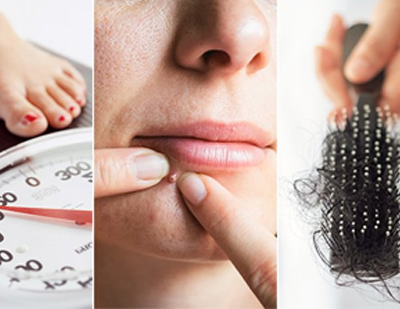Dr. Sukhamoy Barik
MBBS (Cal), MS (Obstetrics and Gynaecology) FMAS
Consultant Gynaec Laparoscopic Surgeon and Infertility Specialist
Call Secretary +91 82828 67107
Email - sukhamoy83@gmail.com
MBBS (Cal), MS (Obstetrics and Gynaecology) FMAS
Consultant Gynaec Laparoscopic Surgeon and Infertility Specialist
Polycystic ovary syndrome (PCOS) is a condition that affects a woman’s hormone levels.
Women with PCOS produce higher-than-normal amounts of male hormones. This hormone imbalance causes them to skip menstrual periods and makes it harder for them to get pregnant.
PCOS also causes hair growth on the face and body, and baldness. And it can contribute to long-term health problems like diabetes and heart disease.
Birth control pills and diabetes drugs can help fix the hormone imbalance and improve symptoms. Read on for a look at the causes of PCOS and its effects on a woman’s body.
What is PCOS?
PCOS is a problem with hormones that affects women during their childbearing years (ages 15 to 44). Between 2.2 and 26.7 percent of women in this age group have PCOS.
Many women have PCOS but don’t know it. In one study, up to 70 percent of women with PCOS hadn’t been diagnosed.
PCOS affects a woman’s ovaries, the reproductive organs that produce estrogen and progesterone — hormones that regulate the menstrual cycle. The ovaries also produce a small amount of male hormones called androgens.
The ovaries release eggs to be fertilized by a man’s sperm. The release of an egg each month is called ovulation.
Follicle-stimulating hormone (FSH) and luteinizing hormone (LH) control ovulation. FSH stimulates the ovary to produce a follicle — a sac that contains an egg — and then LH triggers the ovary to release a mature egg.
PCOS is a “syndrome,” or group of symptoms that affects the ovaries and ovulation. Its three main features are:
- Cysts in the ovaries
- High levels of male hormones
- Irregular or skipped periods
In PCOS, many small, fluid-filled sacs grow inside the ovaries. The word “polycystic” means “many cysts.”
These sacs are actually follicles, each one containing an immature egg. The eggs never mature enough to trigger ovulation.
The lack of ovulation alters levels of estrogen, progesterone, FSH, and LH. Estrogen and progesterone levels are lower than usual, while androgen levels are higher than usual.
Extra male hormones disrupt the menstrual cycle, so women with PCOS get fewer periods than usual.

What causes it?
Doctors don’t know exactly what causes PCOS. They believe that high levels of male hormones prevent the ovaries from producing hormones and making eggs normally.
Genes, insulin resistance, and inflammation have all been linked to excess androgen production.
Common symptoms of PCOS
Some women start seeing symptoms around the time of their first period. Others only discover they have PCOS after they’ve gained a lot of weight or they’ve had trouble getting pregnant.
The most common PCOS symptoms are:
1) Irregular Periods. A lack of ovulation prevents the uterine lining from shedding every month. Some women with PCOS get fewer than eight periods a year.
2) Heavy bleeding. The uterine lining builds up for a longer period of time, so the periods you do get can be heavier than normal.
3) Hair growth. More than 70 percent of women with this condition grow hair on their face and body — including on their back, belly, and chest (11). Excess hair growth is called hirsutism.
4) Acne. Male hormones can make the skin oilier than usual and cause breakouts on areas like the face, chest, and upper back.
5) Weight gain. Up to 80 percent of women with PCOS are overweight or obese.
6) Male-pattern baldness. Hair on the scalp gets thinner and fall out.
7) Darkening of the skin. Dark patches of skin can form in body creases like those on the neck, in the groin, and under the breasts.
8) Headaches. Hormone changes can trigger headaches in some women.